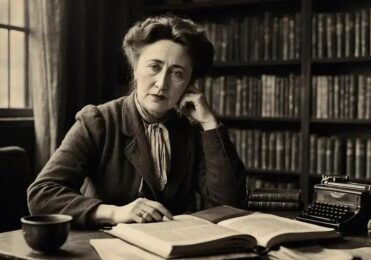French Revolution
4 de junho de 2025
A Revolução Francesa foi um movimento revolucionário que ocorreu entre 1789 e 1799, resultando na queda da monarquia, na criação de uma república e na disseminação de ideais de liberdade, igualdade e direitos humanos que influenciaram diversas lutas por autonomia ao redor do mundo.
A French Revolution reshaped the landscape of modern Europe. Understanding its complexity invites reflection on democracy, rights, and history’s lessons. Ready to explore?
The economic causes of the French Revolution
The economic causes of the French Revolution were rooted in a mix of financial hardship and rising discontent among the populace. In the late 18th century, France faced a severe financial crisis. Heavy debts from previous wars and extravagant spending by the monarchy strained the economy.
Taxation and Inequality
Heavy taxation fell on the lower classes, particularly the Third Estate, while the upper classes enjoyed exemptions. This unfair taxation system led to increasing resentment. The growing financial burden on common people made it difficult for them to meet their basic needs.
Food Scarcity and Pricing
Additionally, poor harvests in the years leading up to the revolution caused food shortages and skyrocketing grain prices. Many families struggled with hunger, which intensified feelings of anger towards the ruling classes.
Enlightenment Ideas
The economic struggles were also fueled by Enlightenment ideas that questioned traditional authority. Thinkers like Jean-Jacques Rousseau critiqued the inequalities in society, promoting the idea of a government that serves the people.
These economic issues, combined with a growing awareness of social injustice, created a volatile environment that led to the outbreak of the French Revolution. The demands for reform were no longer just about financial relief; they were about seeking a more equitable society.
The role of the Enlightenment
The Enlightenment played a crucial role in shaping the ideas that fueled the French Revolution. This intellectual movement encouraged individuals to think critically and question traditional authority. Philosophers and writers promoted reason, science, and individual rights, challenging the status quo of monarchy and aristocracy.
Influential Thinkers
Key figures like Voltaire and Montesquieu criticized inequality and advocated for freedom of speech and separation of powers in government. Their writings inspired people to aspire for a society based on fairness and justice.
Spread of Ideas
The printing press was vital in spreading Enlightenment ideas. Pamphlets, books, and newspapers reached a wide audience, enabling common people to engage with revolutionary thoughts. This access to information ignited discussions about rights and governance.
Impact on Society
As Enlightenment ideas took hold, discontent grew among the classes facing oppression. The Third Estate, made up of commoners, began to demand more rights and representation. They wanted to challenge the old regime and sought the power to influence their own future.
This shift in thinking ultimately contributed to the uprising against the monarchy, demonstrating the profound impact of the Enlightenment on the French Revolution. The revolutionaries were not just fighting for basic needs; they were fighting for liberty, equality, and fraternity.
Key figures in the French Revolution
During the French Revolution, several key figures emerged, each playing a significant role in shaping the course of events. Their ideas and actions influenced the revolution and helped define its legacy.
Maximilien Robespierre
One of the most prominent leaders was Maximilien Robespierre. He was a key member of the Committee of Public Safety and advocated for drastic measures to protect the revolution. Robespierre’s influence peaked during the Reign of Terror, a period marked by intense political purges where many perceived enemies were executed.
Georges Danton
Georges Danton was another leading figure, known for his powerful oratory and charisma. He was instrumental in mobilizing the public support for the revolution. Danton believed in moderation, contrasting with Robespierre’s radicalism, and his calls for relaxation in the policies of terror eventually led to his downfall.
Jean-Paul Marat
Jean-Paul Marat, a journalist and politician, used his writing to incite anger against the monarchy. His newspaper, L’Ami du Peuple, became a vocal platform for revolutionary ideas. Marat’s passionate views made him a beloved figure among the sans-culottes, the radical working-class supporters of the revolution.
Louis XVI
The monarchy was represented by King Louis XVI, whose refusal to accept reforms ultimately led to the revolution. His indecisiveness and perceived weakness added to the public’s discontent, culminating in his arrest and execution in 1793.
These figures, among others, contributed to shaping the events of the French Revolution. Their legacies are remembered as part of the struggle for liberty, equality, and fraternity in France.
The Estates-General and its significance
The Estates-General was a significant assembly in France that represented various social classes. It was convened in May 1789, marking a turning point in the French Revolution. This assembly brought together representatives from three estates: the clergy, the nobility, and the common people, known as the Third Estate.
Composition of the Estates
The First Estate consisted of the clergy, who held significant influence and wealth in society. The Second Estate was made up of the nobility, also privileged and typically exempt from many taxes. In contrast, the Third Estate represented the common people, including peasants, urban workers, and the bourgeoisie, who were heavily taxed and suffered from inequality.
Demands and Grievances
As the Estates-General met, the Third Estate expressed various grievances. They wanted more representation and an end to the privileges enjoyed by the upper classes. These demands included fair taxation and a voice in governance. This push for reform highlighted the growing frustration among the common people.
The Formation of the National Assembly
When the assembly was convened, it quickly became evident that there was a power struggle. The Third Estate sought to make reforms but faced opposition from the other two estates. In June 1789, the Third Estate declared itself the National Assembly, asserting that they represented the will of the people. This declaration was a bold step toward a new order.
The Estates-General thus served as a catalyst for the revolution. It symbolized the demand for change and the rise of the common people’s power in shaping the future of France. This assembly highlighted the need for a new political structure where everyone had a voice.
The fall of the Bastille

The fall of the Bastille on July 14, 1789, marked a pivotal moment in the French Revolution. The Bastille, a fortress prison in Paris, symbolized the tyranny of the monarchy and was a target for revolutionaries seeking to challenge the old regime.
Causes of the Attack
As tensions rose in France due to food shortages and high taxes, anger towards King Louis XVI and his administration grew stronger. Parisians wanted guns and ammunition to defend themselves against the king’s forces. The Bastille was believed to hold a stockpile of weapons, making it a key objective.
The Assault
On the morning of July 14, a crowd gathered outside the Bastille, demanding the surrender of the governor, Marquis de Launay. After hours of negotiation and rising agitation, the crowd stormed the gates. They fought with the guards, and ultimately, the Bastille fell after a fierce battle.
Significance of the Event
The fall of the Bastille became a symbol of the revolution and the fight against oppression. It represented the triumph of the common people over the monarchy’s authority. The event galvanized other cities in France, leading to more uprisings and the eventual downfall of the monarchy. July 14 is now celebrated as Bastille Day, a national holiday in France that commemorates the fight for freedom and democracy.
The event also encouraged revolutionary leaders to push for greater reforms, setting the stage for a new political order based on the principles of liberty, equality, and fraternity.
The Reign of Terror
The Reign of Terror was a dark and tumultuous period during the French Revolution, lasting from September 1793 to July 1794. It was marked by extreme political repression and violence, aimed at eliminating perceived enemies of the revolution.
Key Figures
One of the most influential leaders during this time was Maximilien Robespierre. He believed in using terror as a means to achieve a virtuous society and safeguard the revolution. Under his leadership, the Committee of Public Safety took drastic measures against anyone suspected of opposing the revolutionary government.
Mechanisms of Terror
During the Reign of Terror, the revolutionary government utilized tools such as the guillotine to execute thousands. The most famous victim was King Louis XVI, executed in January 1793. Both nobles and commoners were targeted, leading to a widespread atmosphere of fear.
Impact on Society
The atmosphere of suspicion led neighbors to turn against each other, as anyone could be accused of being an enemy. The revolutionary ideals of liberty and equality were overshadowed by the pervasive fear of punishment. This period saw the execution of approximately 16,000 to 40,000 people.
Eventually, the Reign of Terror began to lose public support. Many revolutionaries started to fear for their own safety as the purges continued. In July 1794, Robespierre himself was arrested and executed, signaling the end of this gruesome chapter.
The legacy of the Reign of Terror remains complex, as it highlighted the dangers of extremism and the consequences of power unchecked by moral considerations. It is a reminder of how the pursuit of an ideal can sometimes lead to horrific outcomes.
Impact of the Revolution on France
The impact of the French Revolution on France was profound and lasting, influencing various aspects of French society, politics, and culture. The revolution fundamentally altered the structure of the French government and society.
Political Changes
One major outcome was the establishment of a republic. The monarchy was abolished, and the ideas of democracy and citizen rights took precedence. The revolution introduced concepts like popular sovereignty, where the power resides with the people, rather than a monarch or ruling class.
Social Reforms
Socially, the revolution attempted to dismantle the feudal system that had long oppressed the lower classes. The privileges held by the nobility and clergy were abolished, leading to a more egalitarian society. Laws were enacted to promote equality, including the declaration of rights that emphasized individual freedoms.
Cultural Shifts
Culturally, the revolution influenced art, literature, and philosophy. Revolutionary ideals spread across Europe, inspiring other nations to pursue democratic reforms. Public festivals celebrating liberty and the values of the revolution became popular, changing how society viewed tradition and authority.
Economic Impact
Economically, the revolution disrupted traditional structures. Land owned by the church and nobility was redistributed, leading to new ownership and the rise of a bourgeois class. However, the turmoil also caused short-term economic instability, including inflation and food shortages.
In summary, the French Revolution brought significant and often turbulent change to France. Its core principles of liberty, equality, and fraternity continue to resonate in modern French identity and governance.
Global influence of the French Revolution
The global influence of the French Revolution extended far beyond the borders of France, inspiring a wave of revolutionary movements across the world. Its ideals of liberty, equality, and fraternity resonated with many who sought change in oppressive systems.
Spread of Revolutionary Ideas
The principles of the revolution were disseminated through pamphlets, newspapers, and the new spirit of nationalism. Many countries in Europe reacted to the revolution by examining their own systems of governance and societal structures.
Influence on Other Revolutions
In Latin America, leaders like Simón Bolívar and José de San Martín were inspired by the French struggle for freedom. They fought against Spanish colonial rule, leading movements that would culminate in independence for many South American countries.
Effects on Europe
In Europe, the revolutionary fervor triggered uprisings and revolts. Countries such as Belgium and Italy saw movements for independence or unification inspired by the French example. The revolution also influenced the development of political ideologies such as socialism and liberalism.
Impact on Human Rights
The Declaration of the Rights of Man and of the Citizen served as a blueprint for human rights documents worldwide. Nations began to adopt similar declarations, laying the groundwork for modern human rights movements.
The French Revolution’s impact is evident in its enduring legacy. Its themes of democratic rights, civil liberties, and social justice continue to inspire contemporary movements advocating for change.
The rise of Napoleon Bonaparte
The rise of Napoleon Bonaparte is one of the most fascinating stories in history. He emerged as a prominent leader during the chaos following the French Revolution. His military prowess and political skills allowed him to rise rapidly through the ranks.
Early Life and Military Career
Born in 1769 on the island of Corsica, Napoleon showed great promise early in his education. He enrolled in a military academy in France and quickly distinguished himself as a skilled artillery officer. His career took off during the revolutionary wars, where he gained recognition for his bold tactics and leadership in battle.
Coup of 18 Brumaire
In 1799, Napoleon staged a coup known as the Coup of 18 Brumaire, which effectively ended the Directory, the then-ruling government. He established the Consulate, placing himself as the First Consul. This move marked the beginning of his control over France and the shift towards a more authoritarian regime.
Consolidation of Power
Once in power, Napoleon worked swiftly to consolidate his authority. He implemented several reforms, including the uniform legal system known as the Napoleonic Code, which laid down principles of equality and individual rights. His governance style emphasized merit over birthright, appealing to many in a society reshaped by revolution.
Expansion of the French Empire
Napoleon’s ambitions led him to seek expansion throughout Europe. Through brilliant military campaigns, he established the French Empire, dominating large parts of Europe. His victories at battles like Austerlitz and Jena boosted his reputation and solidified his control.
However, his quest for power would ultimately lead to his downfall, as prolonged wars created widespread resistance and discontent across the continent.
Lessons learned from the French Revolution

The French Revolution provided numerous lessons that continue to resonate in modern society. These lessons reflect on governance, civil rights, and the balance of power.
Importance of Civic Engagement
One major lesson is the need for active civic engagement. The revolution showed that citizens should participate in government affairs. By voicing their rights and needs, they can influence policies that affect their lives.
Value of Liberty and Equality
The revolution emphasized the importance of liberty and equality, inspiring movements across the globe. The struggle for basic freedoms reminds us that societies must continually strive to uphold these values for all members.
Danger of Extremism
The Reign of Terror demonstrated the dangers of extremism. While fighting for justice and rights, it’s essential to avoid violence and oppression against others. History teaches us that extreme measures can lead to loss of life and liberty.
Checks and Balances
Another key takeaway is the need for checks and balances in governance. The revolution showed what can happen when power becomes concentrated in the hands of a few. A functional government needs to ensure that no single entity or person has too much control.
The Role of Ideals
Finally, the power of ideals in shaping history is evident. Revolutionary ideas about democracy, individual rights, and social justice influenced nations worldwide. They serve as a foundation for many contemporary movements seeking reform.
The Lasting Impact of the French Revolution
The French Revolution continues to be a powerful symbol of change and progress. It taught us the importance of civic engagement, liberty, and equality for all people. The lessons learned from this period remind us that, while fighting for our rights, we must also avoid extremism and seek balance in governance.
Moreover, the ideals born from the revolution have inspired many movements across the globe. They emphasize how powerful ideas can create significant impacts on society. As we reflect on the French Revolution, we realize that its influence remains relevant today, urging us to learn from the past as we work toward a more just and equitable future.
Understanding this history is crucial, as it empowers us to participate actively in our communities and advocate for our rights in modern society.
FAQ – Perguntas frequentes sobre a Revolução Francesa
Qual foi a principal causa da Revolução Francesa?
A principal causa da Revolução Francesa foi a insatisfação popular com a desigualdade social e os altos impostos, especialmente entre a classe comum, conhecida como o Terceiro Estado.
Quem foram as figuras mais importantes da Revolução Francesa?
As figuras mais importantes incluíram Maximilien Robespierre, Georges Danton e Jean-Paul Marat, que desempenharam papéis cruciais na liderança e na ideologia revolucionária.
O que foi a Queda da Bastilha?
A Queda da Bastilha em 14 de julho de 1789 foi um evento simbólico que marcou o começo da Revolução Francesa, quando cidadãos tomaram a prisão da Bastilha em busca de armas e munições.
Qual o significado do Dia da Bastilha?
O Dia da Bastilha, celebrado em 14 de julho, é um feriado nacional na França que simboliza a luta pela liberdade e os ideais da Revolução Francesa.
Como a Revolução Francesa influenciou o mundo?
A Revolução Francesa influenciou o mundo ao espalhar ideais de liberdade, igualdade e direitos humanos, inspirando movimentos revolucionários em outros países ao longo da história.
Quais lições podemos aprender com a Revolução Francesa?
As lições incluem a importância da participação cívica, o valor da liberdade e igualdade, e os perigos do extremismo, mostrando a necessidade de um governo equilibrado e justo.
Relacionados
-
 Praça da Paz Celestial
Praça da Paz Celestial
-
 A batalha de Iwo Jima
A batalha de Iwo Jima
-
 Guerra Civil Espanhola
Guerra Civil Espanhola
-
 History of Brazil
History of Brazil
-
 Rosa de Luxemburgo
Rosa de Luxemburgo
-
 Rosa de Luxemburgo
Rosa de Luxemburgo
